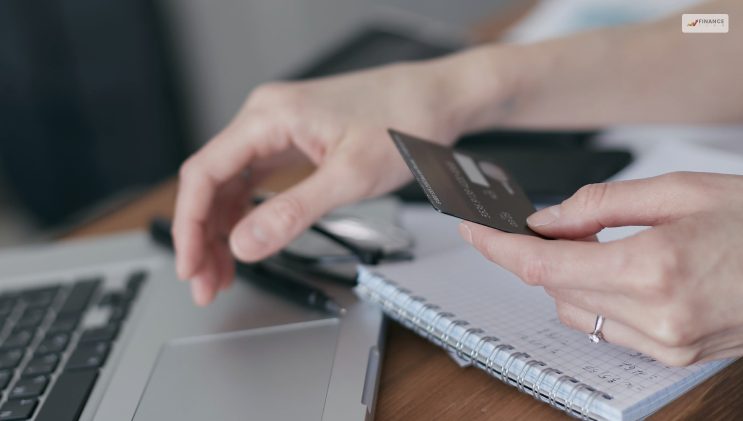Which Payment Option Can Offer Additional Security Like Fraud Protection?

Question: Which payment option can offer additional security like fraud protection?
- Check
- Cash
- Debit cards
- Credit cards
Answer – Credit cards
When you go to the shopping mall or purchase online, you use any of the four methods mentioned above for payment. You can order through a debit/credit card or opt for payment on delivery.
But have you ever wondered which payment option is the best for fraud protection during payment? This article brings the answer to your question. Of course, credit cards are the safest payment option. But here is an explanation about why they are the safest payment options.
Which Payment Option Can Offer Additional Security Like Fraud Protection?

The most secure payment method among all payment options is credit cards. These cards use different features like real-time monitoring, encryption, zero liability policies, etc. These can help prevent fraud –
Here are some safety features –
- Encryption – different online security features are there to keep the accounts safe and personal information hidden.
- Real-time Monitoring – advanced algorithms are integrated into the credit cards. These help users identify any suspicious spending patterns or activity. If there is any unusual spending, users can spot them during the attempt.
Unlike debit card transactions, your payments through credit cards have a limit. Debit cards work like card checks; you can use them to purchase or withdraw cash from the ATM, and online merchants let you cash out some extra amount.
But credit card has a limit. This is usually called credit limit, credit line, or line of credit limit, etc. Once you cross the spending limit, you have to repay your expenses to get extra credit later. Thanks to these limits and all the other benefits mentioned here, credit cards offer the highest amount of security when it comes to using credit cards.
Debit Cards
Debit cards do provide some levels of fraud protection for users. However, the features have limitations and need a different level of comprehensive features than the credit cards. Here are some features –
- Limited liability timeframe
- Direct access to fraud
- Transaction holds
- Overdraft fees
- Chargeback process
Despite these considerations, it’s important to note that many debit cards come with fraud protection features, and regulations (such as those outlined by the Electronic Fund Transfer Act in the United States) provide some level of consumer protection.
It’s advisable to check with your bank or card issuer to understand the specific fraud protection measures in place for your debit card and promptly report any unauthorized transactions. Additionally, good security practices, such as regularly monitoring your account and using secure online banking features, can enhance your overall protection.
Cash Transaction
Cash transactions lack the built-in fraud protection mechanisms often present in electronic payment methods. Here are several reasons why cash transactions may be more susceptible to fraud and less protected compared to digital payment methods:
- Cash transactions are irreversible. It is impossible to reverse cash transactions if any fraud is suspected.
- You cannot trace back to the transaction you made. Most of these transactions are usually anonymous.
- Electronic records of your cash transactions are kept from being online. Because you are handing out cash to someone you are dealing in a transaction with. There are so many risks with the security of your transaction using cash.
Despite these reasons, cash transactions are still widely in use. Many people prefer them for their simplicity, privacy, and the fact that they do not rely on electronic systems. However, individuals engaging in cash transactions should be vigilant and take appropriate precautions to minimize the risk of fraud, such as verifying the authenticity of currency and keeping physical cash secure.
Check Transactions
Checks are paper-based payment instruments that are more susceptible to fraud than electronic payment methods.
While checks may offer certain security features, they lack the advanced fraud protection mechanisms present in digital transactions. Here are some reasons why check transactions may have limited fraud protection:
- Limited Authentication Features: Checks typically rely on essential authentication elements, such as signatures and account numbers. Unlike modern electronic payment methods that use multi-factor authentication and biometrics, checks can be easier to forge or manipulate.
- Check Forgery: Checks are vulnerable to alterations and forgery. Fraudsters may alter the payee, the amount, or the date on a check, leading to unauthorized transactions.
- Transaction Delay: Unlike electronic transactions that can be monitored in real-time, check transactions may take time to clear, and the fraudulent activity may not be detected immediately.
- No Chargeback Process: No chargeback process exists to help users dispute any unauthorized cash transactions. Even if any chargeback process exists, it is time-consuming, complex, and frustrating for users.
- No Real-Time Monitoring: No real-time monitoring system oversees the check transactions. So, if any fraudulent check transaction happens, you will have no real-time data on it.
While checks may lack some of the sophisticated fraud protection features inherent in electronic payment methods, businesses and individuals can take steps to enhance check security. Some examples include security features like watermarks, adopting positive pay services banks offer, and regularly reconciling bank statements.
Additionally, educating individuals on safe check-writing practices and promoting awareness about potential fraud risks can contribute to minimizing the impact of check fraud.
Final Words
So, which payment option can offer additional security, like fraud protection? The answer is a credit card. However, you can use any transaction method per your industry needs. However, regarding security and fraud protection, credit cards top all the different transaction modes.Did you find the answer you were looking for? Please let us know your feedback through the comment section below.
For More Finanace Related Articles Click Below!!










